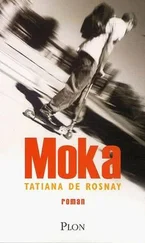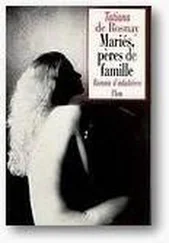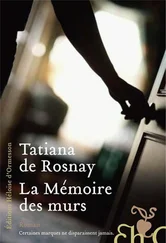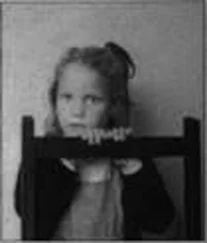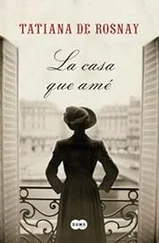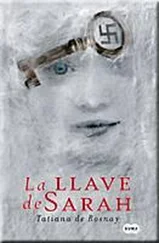“Interesting,” mused Bamber. “Why so many children and women, and so few men?”
“Rumors of a big roundup had been circulating,” I explained. “There had already been a couple before, especially in August of 1941. But so far, only men were arrested. And they hadn’t been as vast, as minutely planned as this one. That’s why this one is infamous. The night of July 16, most of the men went into hiding, thinking the women and the children would be safe. That’s where they were wrong.”
“How long had it been planned for?”
“For months,” I answered. “The French government had been working on it intently since April ’42, writing up all the lists of the Jews to arrest. Over six thousand Parisian policemen were commissioned to carry it out. At first, the initial chosen date was July 14. But that’s the national fête here. So it was scheduled a little later.”
We walked toward the métro station. It was a dismal street. Dismal and sad.
“And then what?” asked Bamber. “Where were all these families taken?”
“Penned in the Vel’ d’Hiv’ for a couple of days. A group of nurses and doctors were finally let in. They all described chaos and despair. Then the families were taken to Austerlitz Station, and then on to the camps around Paris. And then sent straight to Poland.”
Bamber raised an eyebrow.
“Camps? You mean concentration camps in France?”
“Camps that are considered the French antechambers to Auschwitz. Drancy -that’s the one closest to Paris -and Pithiviers, and Beaune-la-Rolande.”
“I wonder what they look like today, these places,” said Bamber. “We should go there and find out.”
“We will,” I said.
We stopped at the corner of the rue Nélaton for a coffee. I glanced at my watch. I had promised to go see Mamé today. I knew I wouldn’t make it. Tomorrow, then. It was never a chore for me. She was the grandmother I had never had. Both of mine had passed away when I was a small child. I just wished Bertrand would make more of an effort, considering she doted upon him.
Bamber dragged me back to the Vel’ d’Hiv’.
“Sure makes me glad I’m not French,” he said.
Then he remembered.
“Oops, sorry. You are now, aren’t you?”
“Yes,” I said. “By marriage. I have dual nationality.”
“Didn’t mean what I said,” he coughed. He looked embarrassed.
“Don’t worry.” I smiled. “You know, even after all these years my in-laws still call me the American.”
Bamber grinned.
“Does that bother you?”
I shrugged.
“Sometimes. I’ve spent more than half of my life here. I really feel I belong here.”
“How long have you been married?”
“It will soon be sixteen years. But I’ve been living here for twenty-five.”
“Did you have one of those posh French weddings?”
I laughed.
“No, it was simple enough. In Burgundy, where my in-laws have a house, near Sens.”
I fleetingly remembered that day. There had not been a great deal exchanged between Sean and Heather Jarmond, and Edouard and Colette Tézac. It seemed like the entire French side of the family had forgotten their English. But I hadn’t cared. I was so happy. Brilliant sunshine. The quiet little country church. My simple ivory dress that my mother-in-law approved of. Bertrand, stunning in his gray morning coat. The dinner party at the Tézacs’, beautifully done. Champagne, candles, and rose petals. Charla delivering a very funny speech in her terrible French, and that only I had laughed at. Laure and Cécile, simpering. My mother and her pale magenta suit, and her little whisper in my ear, “I do hope you’ll be happy, angel pie.” My father waltzing with the stiff-backed Colette. It seemed so long ago.
“Do you miss America?” Bamber asked.
“No. I miss my sister. But not America.”
A young waiter came to bring us our coffees. He took one look at Bamber’s flame-colored hair and smirked. Then he saw the impressive arrays of cameras and lenses.
“You tourists?” he asked. “Taking nice photos of Paris?”
“Not tourists. Just taking nice photos of what’s left of the Vel’ d’Hiv’,” said Bamber in French, with his slow British accent.
The waiter seemed taken aback.
“Nobody asks about the Vel’ d’Hiv’ much,” he said. “The Eiffel Tower, yes, but not the Vel’ d’Hiv’.”
“We’re journalists,” I said. “We work for an American magazine.”
“Sometimes there are Jewish families who come in here,” recalled the young man. “After one of the anniversary speeches at the memorial down by the river.”
I had an idea.
“You wouldn’t know of anybody, a neighbor on this street, who knows about the roundup, who could talk to us?” I asked. We had already spoken to several survivors; most of them had written books about their experience, but we were lacking witnesses. Parisians who had seen all this happen.
Then I felt silly; after all, the young man was barely twenty. His own father probably wasn’t even born in ’42.
“Yes, I do,” he answered, to my surprise. “If you walk back up the street, you’ll see a newspaper store on your left. The man in charge there, Xavier, he’ll tell you. His mother knows, she’s lived there all her life.”
We left him a large tip.

THERE HAD BEEN AN endless, dusty walk from the little train station, through a small town, where more people had stared and pointed. Her feet ached. Where were they going now? What was going to happen to them? Were they far from Paris? The train ride had been fast, barely a couple of hours. As always, she thought of her brother. Her heart sank lower with each mile they covered. How was she ever going to get back home? How was she going to make it? It made her feel sick to think he probably thought she’d forgotten him. That’s what he believed, locked up in the dark cupboard. He thought she had abandoned him, that she didn’t care, that she didn’t love him. He had no water, no light, and he was afraid. She had let him down.
Where were they? She hadn’t had time to look at the name of the station as they had pulled in. But she had noticed the first things a city child pays attention to: the lush countryside, the flat green meadows, the golden fields. The intoxicating smell of fresh air and summer. The hum of a bumble bee. Birds in the sky. Fluffy white clouds. After the stink and heat of the past few days, this was glorious, she felt. Maybe it wasn’t going to be that bad, after all.
She followed her parents through barbed-wire gates, with stern looking guards on each side holding guns. And then she saw the rows of long dark barracks, the grimness of the place, and her spirits sank. She cowered against her mother. Policemen started to shout orders. The women and children were told to go to the sheds on the right, the men on the left. Helpless, holding on to her mother, she watched her father be pushed along with a group of men. She felt afraid without him by her side. But there was nothing she could do. The guns terrified her. Her mother did not move. Her eyes were dulled. Dead. Her face was white and sickly.
The girl took her mother’s hand as they were shoved toward the barracks. The inside was bare and grimy. Planks and straw. Stench and dirt. The latrines were outside, planks of wood astride holes. They were ordered to sit there, in groups, to piss and defecate in view of all, like animals. It revolted her. She felt she could not go. She could not do this. She looked on as her mother straddled one of the holes. She bowed her head in shame. But she finally did what she was told, cringing, hoping no one was looking at her.
Читать дальше


